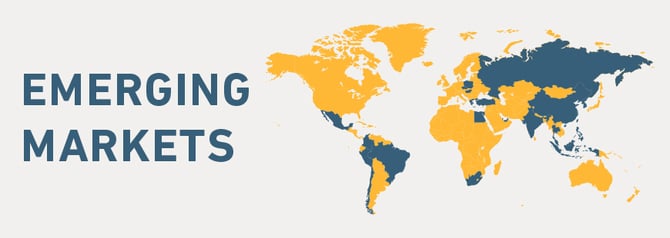Emerging Markets Look to Avoid Fed Fallout

Emerging market funds look set to perform better this month than they historically have when the US Fed hikes interest rates.
Emerging economies normally brace for a strong dollar, since they have often borrowed heavily in the greenback and suffer from this high exposure. When US treasury yields go up, as they already have in anticipation of the planned interest rate increase, the dollar appreciates.
After the last major Fed interest rate increase in 2013, emerging markets suffered. This time they appear to be prepared. Many emerging market central banks preempted a soaring dollar against their currencies by tightening sharply ahead of time.
In the last year alone, Brazil's central bank has raised its policy interest rate by almost nine percentage points to 10.75%. Russia and South Korea doubled their interest rates to 8.5% and 1.25%, respectively. Chile has recently added five basis points to reach 5.5%.
Still, emerging equity investors are unsettled, with last week being the seventh consecutive week of net outflows from emerging equity funds and a fourth straight week of exits from emerging-market bond funds.
What does this mean for me?
Some analysts believe that emerging markets are breaking away from their dependence on the developed world by concentrating on homegrown drivers of domestic demand.
As an investor in emerging market equities, you should pay attention to how your portfolio responds when the dollar inevitably strengthens during the year.
More News
.webp)
Canada Shields Steel and Lumber Industries From Tariffs

Trump Drops Selected Tariffs in Response to Inflation Pressures

Tariffs on Mexico Test Nuevo Leon’s Industrial Momentum

US Moves to Ease Latin American Tariffs as Food Inflation Mounts

Japan Faces First GDP Shrinkage in Six Quarters as Tariffs Bite

India’s Inflation Dip Strengthens Case for RBI Easing

Europe Rallies as Shutdown Eases, Earnings Impress
